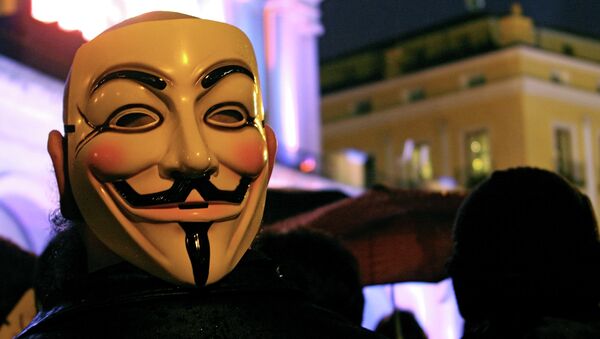— TheAnonMessage (@TheAnonMessage) January 14, 2015
Anonymous has named 20-year-old Junaid Hussain as being associated with CyberCaliphate, the group responsible for the attack. While experts aren’t sure if Hussain was personally involved in Monday’s hacks into Centcom’s Twitter and YouTube accounts, U.S. and European government sources are now pinning Hussein as the leader of CyberCaliphate.
A native of Birmingham, England, Hussain was jailed in 2012 for hacking into former Prime Minister Tony Blair’s address book, and pleaded guilty to posting the contacts online and making prank phone calls.
— Jay Leiderman (@JayLeidermanLaw) August 26, 2014
Hussain was also thought to be the mastermind in a hacking plot to transfer vast sums of money from British financial institutions into ISIL-controlled accounts.
Government agencies are investigating whether Monday’s cyberattack could have originated in Syria, where Hussain is believed to have fled after jumping bail two years ago.
Investigators also believe Hussain was behind a Twitter account which claimed responsibility for cyberattacks on the Albuquerque Journal in New Mexico and a local Delaware television station.
A Bumbling Caper
While the U.S. government went to great lengths to identify – perhaps inaccurately – those responsible for hacks into Sony Pictures, the solution to Monday’s riddle all but fell into Anonymous’s lap.
Anon Message, a Twitter account run by Anonymous activists, was also hacked Monday evening, its profile picture replaced with the same CyberCaliphate logo that was seen on Centcom’s page.
“In the name of Allah the beneficient the merciful, the Islamic State is forever Allahu Akbar,” a tweet read.
While Centcom’s social media accounts were effectively crippled for hours after Monday’s attack, Anonymous was able to gain control in less than five minutes.
And in the process, discovered the source of the attack.
— Mikael Thalen (@MikaelThalen) January 13, 2015
After unveiling the identity of Junaid Hussain, Anon Message posted a tweet condemning the actions of ISIL hacking groups.
“…We truly condemn any actions taken by those who associate themselves with ISIS and continue to wreak havoc across the Internet,” the tweet reads.
While some experts still question the reasoning in linking Hussain to the CyberCaliphate hacks, government agencies strongly believe him to be a suspect, and the investigation is ongoing.
In a latest twist, Hussain’s wife posted through her own Twitter account last week that her husband had been killed in a drone strike. If true, that fact could seriously derail investigators’ accusations, but it remains possible the post was attempting to fake Hussain’s death to provide an alibi. U.S. and European security officials said there is no confirmation that Hussain was killed.
— TheAnonMessage (@TheAnonMessage) January 14, 2015
The hack occurred Monday afternoon just minutes after President Obama delivered a speech on cybersecurity. CyberCaliphate posted pro-ISIL tweets, as well as documents which purportedly showed classified intelligence, though the validity of those documents has since come into questions. The group also posted propaganda videos through Centcom’s YouTube account.
Pentagon spokesman Army Colonel Steve Warren called the hacks “inconvenient,” but stressed that hacking into social media accounts is a far cry from hacking into Centcom’s central servers, and the incident didn’t represent a security threat.


